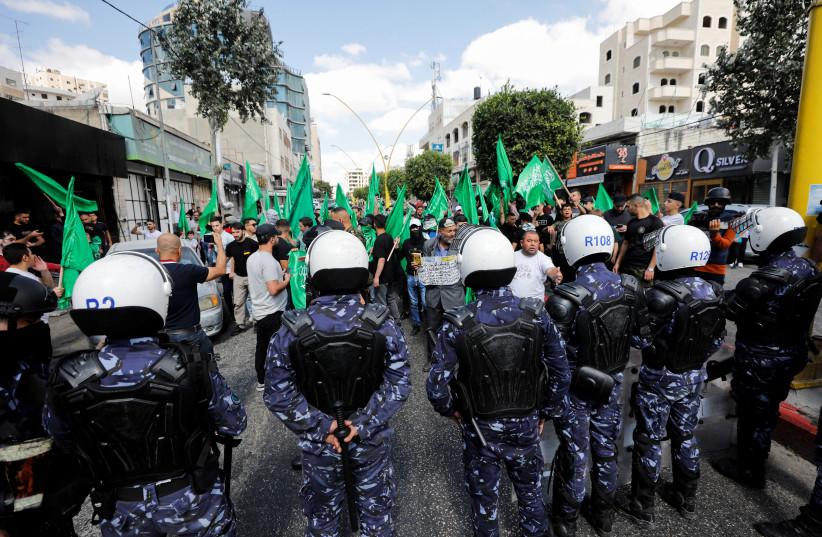
Yahya Ayash: Hamas’ Reign of Terror
Yahya Ayash, infamously known as “The Engineer,” was a key figure in the history of Hamas, a Palestinian militant group. Ayash’s involvement in orchestrating numerous deadly attacks against Israeli targets earned him a reputation as a mastermind of terror. In this extensive blog post, we will delve into the life and death of Yahya Ayash, exploring his radicalization, his role within Hamas, and the chilling details of the terror attacks he committed that left a lasting impact on the Israeli-Palestinian conflict.
Born in 1966 in the Palestinian village of Rafat, near Ramallah, Yahya Ayash grew up in an environment marked by the hardships faced by Palestinians under Israeli occupation. Ayash’s exposure to the struggles of his people, coupled with his strong religious beliefs, fueled his growing radicalization. While studying electrical engineering at Birzeit University, Ayash became involved with Islamist student groups and developed connections within the emerging Hamas movement, setting the stage for his future involvement in terrorism.
As Hamas gained prominence in the late 1980s, Yahya Ayash emerged as a central figure within the organization. Renowned for his technical expertise, Ayash became Hamas’ chief bomb-maker, responsible for designing and constructing improvised explosive devices (IEDs) used in attacks against Israeli targets. Ayash’s engineering background allowed him to develop innovative bomb-making techniques, including the use of cell phones as remote detonators, making his attacks more lethal and difficult to detect.
Yahya Ayash’s involvement in planning and executing attacks against Israeli civilians and military personnel was instrumental in Hamas’ violent campaign. Ayash’s deadly attacks included the 1994 bombing of a bus in Afula, Israel, which claimed the lives of eight people and injured dozens. In 1995, he orchestrated the bombing of a Jerusalem bus, resulting in the deaths of six Israelis and leaving many more wounded. Ayash’s attacks targeted crowded public spaces, maximizing casualties and instilling fear among the Israeli population.
Ayash’s sinister ingenuity was evident in his use of booby-trapped cell phones. He would disguise explosive devices as everyday objects, such as a mobile phone or a transistor radio, and then plant them in public areas. Innocent victims unknowingly triggered the explosions when they answered or manipulated the rigged devices, causing devastating consequences.
Yahya Ayash’s notoriety made him a prime target for Israeli intelligence agencies. In a relentless pursuit, Israeli security forces launched a manhunt to capture or eliminate Ayash. Despite his elusive nature, Ayash was eventually tracked down and killed in January 1996. The circumstances surrounding his death remain controversial, with some claiming he was assassinated by Israeli intelligence, while others argue that his own bomb-making expertise led to his demise.
Yahya Ayash’s life and actions left an indelible impact on the Israeli-Palestinian conflict. His innovative bomb-making techniques and orchestration of deadly attacks solidified Hamas’ reputation as a formidable militant group. Ayash’s legacy continues to inspire and motivate individuals sympathetic to Hamas’ cause, perpetuating a cycle of violence that hampers the prospects for peace in the region. The chilling details of his terror attacks, which targeted innocent civilians, highlight the ruthlessness and disregard for human life that characterizes Hamas’ tactics.
Yahya Ayash, “The Engineer,” played a pivotal role in shaping Hamas’ reign of terror. His expertise in bomb-making and orchestration of deadly attacks against Israeli targets left an indelible mark on the Israeli-Palestinian conflict. Ayash’s radicalization, rise within Hamas, and eventual demise underscore the complexities and challenges faced in the pursuit of peace in the region. Understanding the life and death of Yahya Ayash provides crucial insights into the motivations and tactics employed by Hamas, shedding light on the ongoing struggle for a peaceful resolution to the Israeli-Palestinian conflict.
Source: timesofisrael





